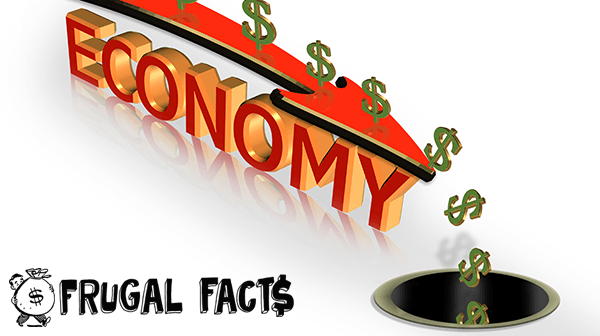
Get ready for another ride folks! News reports are showing that the economy has decreased in the first half of 2015. This has analysts and news outlets sounding alarms that Canada is in a recession. The technical definition for a recession means is defined as a decrease in GDP for two or more consecutive quarters. So while some are getting ready to bunker down, I am wondering are things really that bad?
If you live in Canada, or follow Canadian economics; you are well aware that the recent price hit on crude oil has taken a major toll on Canadian commodities. Yes this is bad for the country. No, it is not the end of the world as we know it.
My advice for you all is to sit tight because the economy is always in motion, just like a roller coaster. What goes up must come down, and vice versa.
The easiest way to ride out the storm and get through a recession is to cut your spending. This is exactly what corporations do in down times because it is something you have direct control over. It is far easier to reduce your current spending habits then it is to magically create money quickly and without effort.
Frugal Tips to Survive a Recession
Stop Eating Out
Eating out is a HUGE expense! This includes all sources of dining out including coffee, snacks, lunch, etc…
The truth is you can make the same meals at home for only a small fraction of the cost you would pay for them in a restaurant.
Make bigger portions at dinner and then put away leftovers for your lunch the next day.
Avoid Driving for Short Trips
Even though gas is cheap right now, your car is still the biggest black hole for your money. If you have a bike and live close to work, try biking to work a couple days a week while the nice weather is still here.
Walk to the grocery store if you can. This is good exercise but will also force you to avoid buying too many items which can lead to spoilage or overspending.
Create a Budget and Stick to It
Budgets are absolutely essential. Figure out how much money you have and then allocate portions of it to the fundamentals for your lifestyle.
Look for excessive spending on luxury items and trim them down to a more reasonable figure. There are lots of ways you can reduce your spending without sacrificing your quality of life.
There are a couple of ways to go about setting a budget. You can either go the old school route and put set cash amounts into categorized jars. Or, you can use software. Intuit provides a free service called Mint which allows you to track your spending across all of your accounts. You can also setup monthly spending budgets and receive emails to alert you if you are going to exceed your spending in a category.
Another good software is called YNAB (You Need A Budget). This tool helps you create budgets and train yourself to spend less and less each month until you reach a point that you can maintain and still live comfortably.
Look for Cheap Sources of Entertainment
When it comes to cheap sources of entertainment, there is nothing better than a public library. Most modern libraries now carry DVD’s, audio books, and even video games in addition to the traditional paperback books. Find out more by reading our article on Finding Free Entertainment at your Public Library.
if you live in a fairly large size city, there are probably a number of events happening every week that are either free to attend or very low in price. Look for pubs that have a trivia night, or a live band. These go against the stop eating out tip, but once a month or so is not going to hurt. Make it a fun night out and invite a group of friends.
Another fun thing to do in the summer months is to organize a party in the park. Find a local park in your city and spread the word online and with posters around town. This is a great way to meet people who live in your neighbourhood and have a good time for not much money.
Create an Emergency Fund
You never know when things can go from bad to worse. It is always a good idea to have a savings account setup but in hard economic times, it is an absolute necessity. After following all of the tips above, figure out how much you have cut from your previous spending and set aside 10-20% of the difference into a savings account with the best rate of return you can find.
